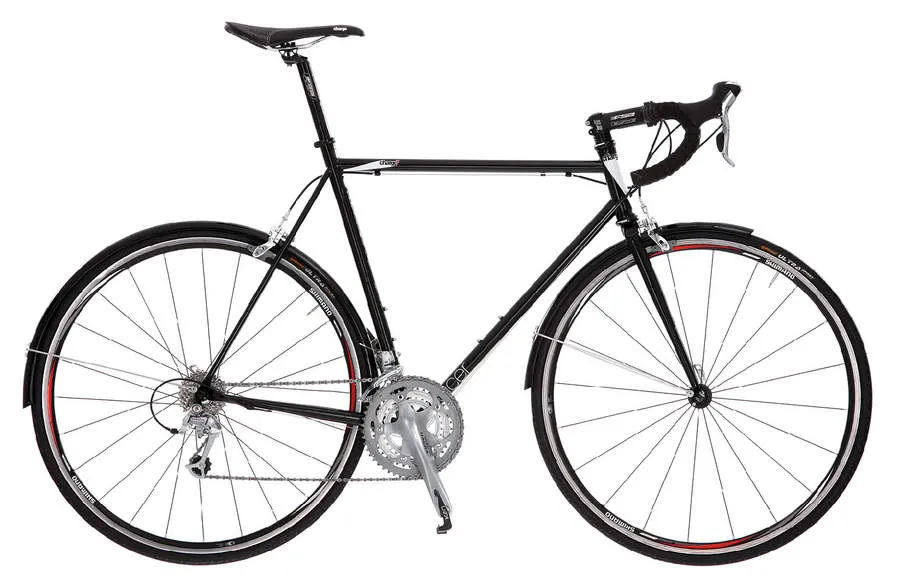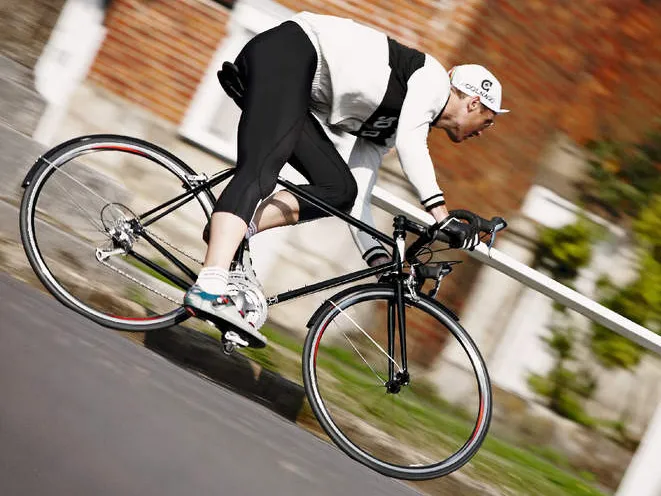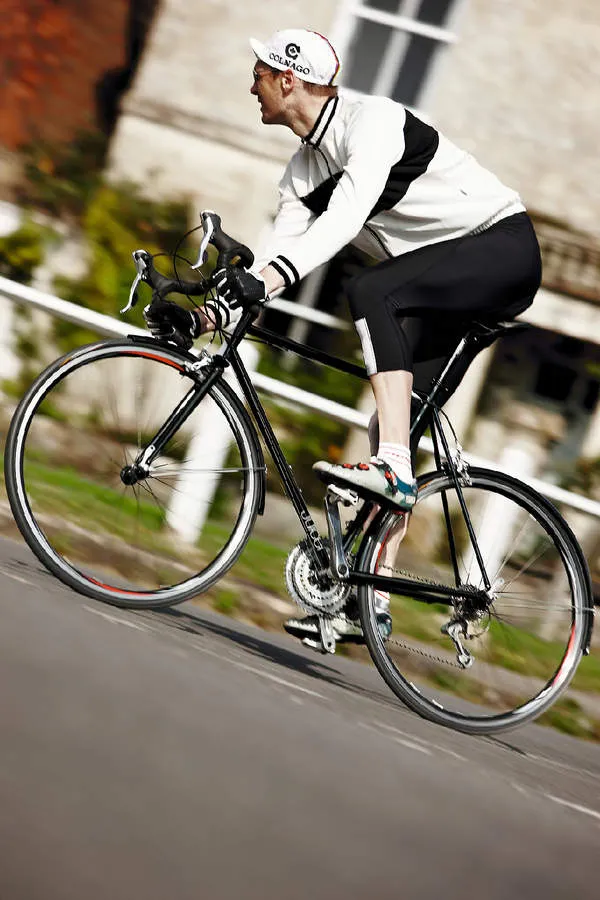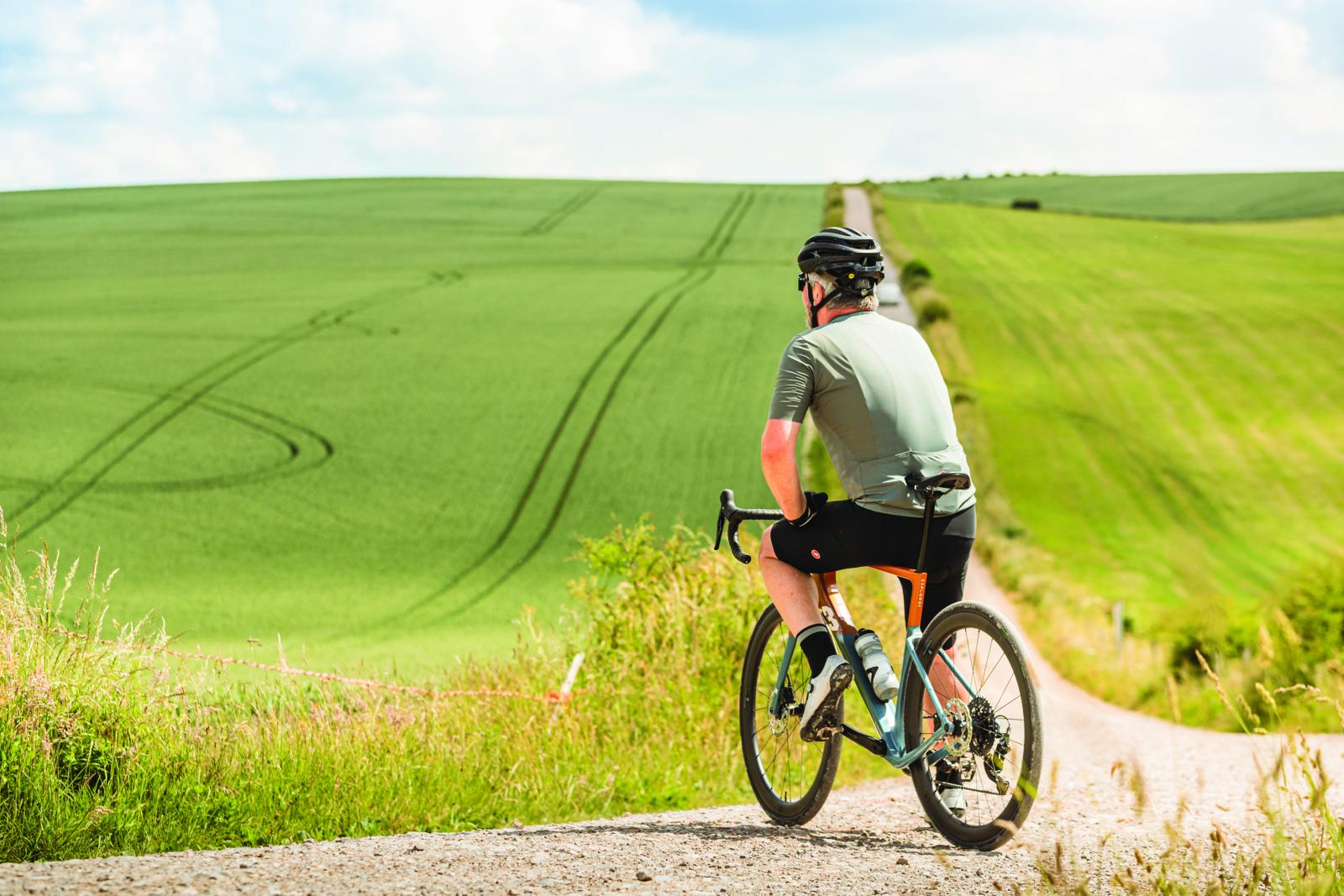Somerset’s Charge Bikes made their name in the mountain bike world but have become one of the best known brands in the fixed wheel market. This year the company have expanded their range with the Juicer, a modern take on the classic British steel racing bike.
It weighs in at 23lb, which is no lightweight when compared to a carbon bike, but out on the road it doesn’t seem that much of an issue. The bike rolls beautifully, is stable at speed, and you only really notice the extra pounds on long climbs – when the big spread of gears courtesy of a triple chainset comes to the rescue.
Ride & handling: Comfortable machine that excels at eating up the miles
The Juicer has been developed with input from Charge’s team riders, and they have created a superbly positive-feeling frame around a Tange Prestige tubeset.
Through the pedals and chainstays the Juicer feels as rigid as a quality carbon frame, but the thin pencil seatstays and straight, narrow-bladed fork means it’s both remarkably absorbent over rough surfaces and able to maintain a straight line, with positive acceleration out of the saddle.
This bike really excels at eating up the miles. It’s not quite as fast as a stiff carbon lightweight, but the comfort offered by the frameset is more than enough compensation when you’re spending long days in the saddle.
The groupset and wheels are from Shimano: R500 wheels, and a Tiagra drivetrain which eschews the current fashion for compact gearing in favour of a 50/39/30 triple.
While some might think this is overkill for general riding, if you live in a hilly area it’ll prove a boon – as we discovered when, as part of the test, we took the Juicer to Cornwall for a few days and rode it up the killer hills around Bodmin Moor. Having the bail-out 30-tooth granny ring means you can keep turning the pedals with tired legs on steep ascents.

Equipment: Excellent bar and saddle, but brake pads don't cut the mustard
Although you’d expect rack mounts on a bike with a touring or audax background, the Juicer sets itself out as a racer through and through, and there’s no provision for luggage carrying here.
Being a British company, Charge have specced mudguards – not standard aftermarket off-the-peg items though, these are colour co-ordinated with the frame, with plenty of clearance should you want to change the standard Continental Ultra Sport 23mm tyres fitted for something bigger and more hardy for winter riding.
The finishing kit, including FSA seatpost, stem and bar, is all mid-range quality. The saddle is Charge’s excellent Knife, a slimmer version of the top rated Spoon and one of the most comfortable saddles out there.
The bar is FSA’s superb shallow drop design – a great choice for riders new to road bikes as its reduced depth makes it more comfortable than a standard drop bar, and encourages even experienced riders to get off the hoods and spend more time in a slippery aero position.
Unfortunately it’s not all good news. The Tektro R538 brakes are good, featuring a neat quick-release mechanism, and are solidly made with no noticeable flex or chatter even when braking full-on, but the problem is the pads’ waxy surface; they just don’t offer enough grip or bite, and you end up grabbing fistfuls of brake in an effort to slow down, making modulation or scrubbing speed on fast descents nigh on impossible.
We thought it was simply because they were new, but even after plenty of miles of riding the pads only improved marginally. Also, being from the budget end of the range they aren’t the cartridge variety, so replacing them is a more costly business as you need the carriers too.


